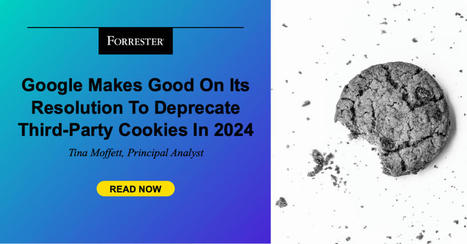Google's plans to deprecate third-party cookies are underway, but online tracking is here to stay as the search giant tightens its stranglehold on browsing data
Google has begun phasing out third-party cookies in Chrome, aiming for a complete phase-out by end of 2024, impacting businesses' data collection methods. This move shifts focus to first-party data and introduces alternatives like Topics for ad targeting, while addressing privacy concerns. Critics argue this strengthens Google's data control, raising questions about online privacy and competition. Google's approach reflects a broader industry trend towards privacy-centric web browsing, urging businesses to adapt to first-party data strategies for digital marketing.



 Your new post is loading...
Your new post is loading...














The shift towards first-party data collection, as highlighted by Google's phase-out of third-party cookies, underscores the growing importance of ethical and transparent data practices, such as those enabled by cross-web clickstream data. This approach aligns with the need for businesses to adapt to privacy-focused changes while maintaining effective marketing strategies. For detailed guidance on navigating these changes, the Consumer Data Types Cheat Sheet available at https://www.voxtrack.ai provides comprehensive insights into leveraging various data types ethically and effectively.